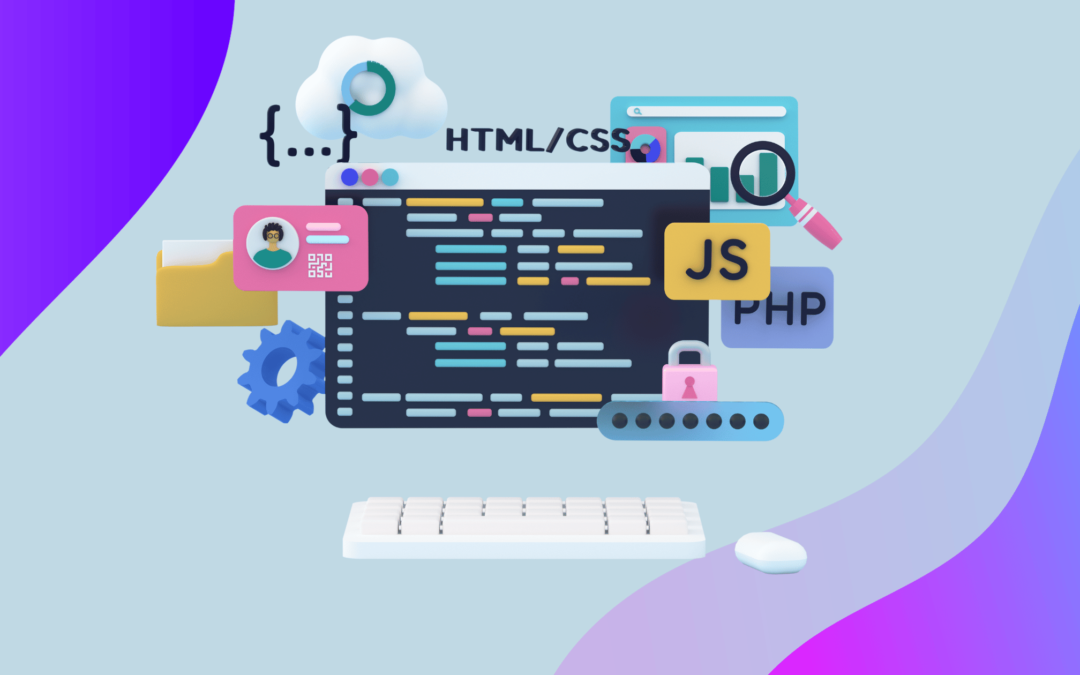As a frontend developer, I’ve spent countless hours crafting beautiful user interfaces, ensuring seamless user experiences, and delving deep into the intricacies of HTML, CSS, and JavaScript. Frontend development has been my passion, my expertise, and my creative outlet. But lately, I find myself pondering a question that many in the field may have also asked themselves: Is frontend development enough, or should I learn backend development too?
In this blog post, I’ll share my thoughts and experiences as I contemplate whether expanding my skill set to include backend development is the right move for me, and perhaps for other frontend developers facing the same decision.
The Power of Frontend Development: Frontend development is an exhilarating world where you bring design mockups to life, build responsive layouts, and create interactive web applications. You’re responsible for what users see and interact with, making frontend development a crucial part of web development.
The skills required for frontend development are diverse and ever-evolving. Understanding the latest JavaScript frameworks, mastering CSS techniques, and ensuring cross-browser compatibility are just a few challenges that frontend developers tackle daily. This constant learning and adaptation keep the work fresh and engaging.
The Frontend-Backend Divide: Frontend development and backend development are like two sides of the same coin. While frontend developers focus on what users experience, backend developers work behind the scenes to handle server-side logic, databases, and APIs. The division between the two is clear, but they are also interdependent.
Frontend developers rely on the APIs provided by the backend to retrieve and display data. Without a solid backend foundation, frontend development can be limited, especially when dealing with complex data-driven applications. This realization has led many frontend developers, myself included, to question whether learning backend development could enhance our skill set and career prospects.
The Case for Learning Backend Development:
- Full Stack Versatility: Learning backend development allows you to become a full-stack developer, capable of handling both the frontend and backend aspects of a web application. This versatility can make you more valuable to employers and open up a broader range of job opportunities.
- Better Collaboration: Understanding the backend can facilitate smoother collaboration with backend developers. You’ll be able to communicate more effectively, leading to improved teamwork and faster development cycles.
- Problem Solving: Backend development often involves solving complex problems related to data storage, security, and performance optimization. These problem-solving skills can be beneficial in any development role.
- Career Growth: Many job postings and projects require full-stack developers, making backend knowledge a valuable asset for career growth. It can also lead to higher salaries and more challenging roles.
The Challenges of Learning Backend Development: While there are compelling reasons to explore backend development, it’s not without its challenges:
- Learning Curve: Backend development can be significantly different from frontend work. You’ll need to pick up new languages (e.g., Python, Ruby, or Node.js) and concepts (e.g., databases and server architecture).
- Time Investment: Learning backend development takes time and dedication, which can be challenging if you’re already busy with frontend projects.
- Balancing Act: Becoming proficient in both frontend and backend development may require you to strike a balance and prioritize certain skills depending on your career goals.
Conclusion: As I weigh the pros and cons of learning backend development, I find myself leaning toward expanding my skill set. The idea of becoming a full-stack developer and gaining a deeper understanding of the entire web development process is appealing. However, it’s crucial to recognize that frontend development is a valuable skill in its own right.
Ultimately, the decision to learn backend development or stick to frontend development depends on your career goals, interests, and the opportunities you wish to pursue. The frontend is a dynamic and exciting field, but embracing backend development can open new doors and enhance your capabilities as a developer.
Whether you choose to venture into backend development or remain a frontend enthusiast, remember that the web development world is ever-evolving, and the most successful developers are those who continue to learn and adapt throughout their careers. So, is frontend dev enough? It’s a valid question, but perhaps the answer lies in finding the right balance that suits your individual aspirations and passions.


